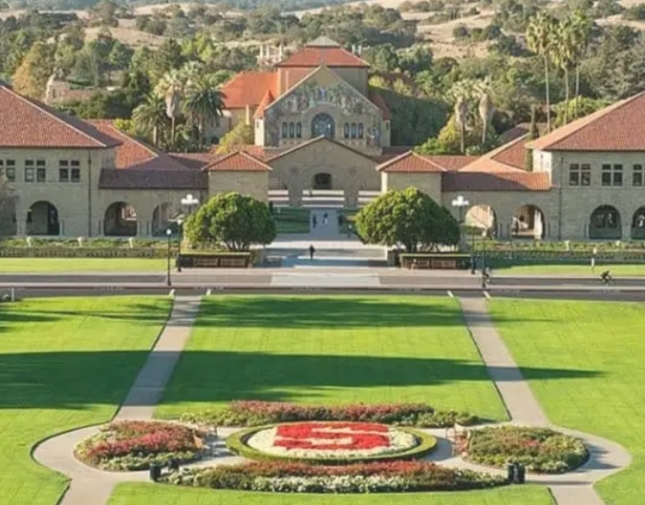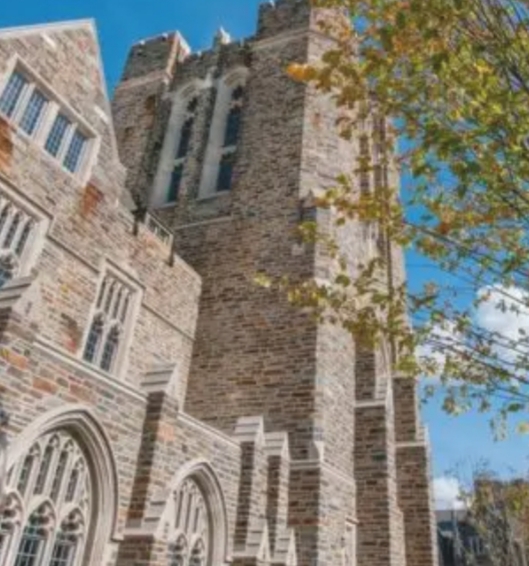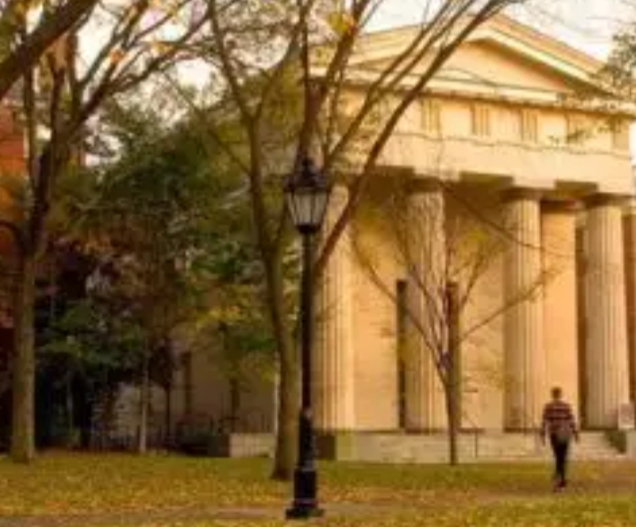Top 10 Tuition-free Universities For 2021, you can apply
The tuition-free colleges College Consensus is featuring here are presented according to their current total Consensus score, followed by schools holding only a Student Consensus Score. Schools without any Consensus score at all are presented in alphabetical order. All scores are clearly identified for each institution so you can compare for yourself.
1. Stanford University
With its status as the central institution in Silicon Valley, Stanford University is, far and away, the most popular “Dream College” of thousands of American students.
Founded in 1885 by railroad baron Leland Stanford, Stanford University was intended to be the Cornell of the west, modeled on the Ivy League university that pioneered engineering and applied sciences.
But Stanford turned out to be quite more, especially as it took an innovative, entrepreneurial turn following WWII. By encouraging and investing in the technological innovations of its students and faculty, Stanford helped create, essentially, the modern world, centered around Silicon Valley.
From Nobel Laureates and Turing Award winners, to internationally known billionaires and companies like Hewlett-Packard, Cisco, and Google, Stanford has made its mark on the past and future.
2. Harvard University
Writing about Harvard University means running out of superlatives; there are not enough words for “best,” “highest,” and “most.” Founded in 1636, Harvard was America’s first college, and the first legal corporation.
It is the wealthiest university in the world, with the highest endowment of any college or university, and educated the most US presidents of any institution.
Harvard has been ranked the top university in the world for every year of the Academic Ranking of World Universities, although it has fought mightily with Princeton University over the top spot in U.S.
News & World Report. In short, Harvard has always exemplified excellence in higher education (and has never been shy about saying so).
3. Yale University
When we talk about the Ivy League, we’re talking about Yale University. The third-oldest university in America, one of the Colonial Colleges (founded in 1701), and a standard for higher education, Yale has been the alma mater of Presidents, Senators, Supreme Court justices, CEOs, and some of the most influential cultural figures in American history.
From literature and philosophy to law and business, Yale has been one of the formative institutions in higher education, not only leading research, but establishing standards of academic excellence and building the traditions we consider basic to the American collegiate experience, such as football and Greek life.
Yale is regularly ranked as one of the top 3 universities in the nation by U.S. News & World Report, and dominates global rankings as well.
4. Princeton University
Princeton University is New Jersey’s Ivy League university and Colonial College, founded in 1746 as the fourth university in the American Colonies.
While Princeton was founded as a seminary and college in the Scots-Irish Presbyterian tradition, the school grew far beyond those bounds, helping to fundamentally alter American higher education along the way.
As a pioneer in fields ranging from political science to engineering, Princeton has been the home of Nobel Prize, Turing Award, National Medal of Science, and National Medal of Humanities winners in both the faculty and alumni.
In addition to billionaires and CEOs, Princeton alumni have included Presidents, members of Congress, and Supreme Court justices. Princeton is regularly ranked among the top 2 or 3 national universities by publications like U.S. News & World Report and Forbes.
5. Columbia University

Columbia University is New York’s oldest college, founded in 1754, and joins the other Colonial Colleges as a member of the Ivy League.
Columbia has been a deeply connected part of the life of New York City since NYC was an up-and-coming port town, educating business leaders, teachers, artists, writers, and even US Founding Fathers.
Columbia’s alumni and faculty doesn’t just consist of Nobel Laureates, National Medal of Science and National Medal of Humanities winners, and even Academy Award winners – Columbia awards the prestigious Pulitzer Prize. Columbia is regularly ranked one of the top 5 universities in the US, and a top 10 in the world.
6. Cornell University
Cornell University is the youngest of the Ivy League, founded in 1865 by Ezra Cornell and Andrew Dickson White, and from its very beginnings Cornell was intended to be different. While the rest of the Ivy League universities (except for Penn) were founded as seminaries, Cornell was the only one founded after the advent of the research university.
It was, therefore, the first of the Ivy League to embrace technology and entrepreneurial innovation – a model for later schools like Stanford University.
Cornell is regularly ranked among the top 20 universities worldwide and in the US by publications like the Academic Ranking of World Universities and U.S. News & World Report, and has particularly been singled out for its community engagement and impact on social mobility.
7. University of Pennsylvania
The University of Pennsylvania is a place of great significance. Eight other universities can claim Colonial College heritage, founded before the American Revolution; other universities, like the University of Virginia, can claim to be founded by one of the United States’ Founding Fathers.
But only the University of Pennsylvania was founded by Benjamin Franklin, guided by the same Enlightenment principles of reason, science, and liberty that also build the United States.
Penn is home to the US’s first medical school and business school – in fact, Penn was the first university in America to be called a “university.”
That tradition continues without slowing down; Penn is consistently ranked one of the top 10 universities in the US, and one of the world’s best.
8. Duke University

Duke University is a private research institution that was established in 1838. Located in Durham, North Carolina, it was founded by a group of both Methodists and Quakers as Trinity College. The undergraduate liberal arts college within the university still bears the Trinity College name.
The campus spans over 8,500 acres on three contiguous campuses. Duke is known for the high level of research conducted on campus, and has the 7th highest research expenditure for any university in the country.
They are also the home of 37,000 employees, making them the second largest employer in the country. The main campus highlights the famous Duke Chapel in the center of campus, which offers the highest point of elevation.
9. Dartmouth College
Dartmouth College was the last of the nine colleges founded before the American Revolution – the Colonial Colleges – beginning in 1769.
Originally, Dartmouth’s mission was to bring Christianity and Christian education to the Native Americans, but eventually the school settled into a seminary for Congregational ministers. Dartmouth remained small and little-known among the Ivy League until the 20th century, when the college began developing into a research university more like its peers.
While it retains the name “college” and is the smallest of the Ivy League schools, Dartmouth is a comprehensive, doctoral-level research university regularly ranked one of the nation’s best undergraduate educators. U.S. News recognizes Dartmouth as the #11 national university in the US – not bad for the little guy.
10. Brown University

Brown University is one of the most prestigious and influential universities in American history. Founded in 1764, Brown is one of the nine historical Colonial Colleges founded before the American Revolution, and an original Ivy League university. Brown’s influence can be seen across American higher education; it was the first university in the US to admit students regardless of religious affiliation, and the first Ivy League institution to start an engineering program.
Brown also pioneered curriculum reform in the 20th century with the New Curriculum, often called the Brown Curriculum; by eliminating general education courses, Brown was the first university to allow students to set their own academic path in either pass/no-credit courses.
Brown is ranked as one of the top 20 universities in the nation by U.S. News & World Report, and counts Nobel Laureates, MacArthur geniuses, and Supreme Court justices among its alumni.
Kindly read all the Latest News, Entertainment News and gossips here. Follow us on Facebook, Instagram, Twitter, YouTube and Telegram.




![School Girl Escapes Class To Smoke Cigarettes Like A Professional [VIDEO] School Girl Escapes Class To Smoke Cigarettes Like A Professional [VIDEO]](https://ghananewsprime.com/wp-content/uploads/2023/11/20231120_115707-450x261.jpg)